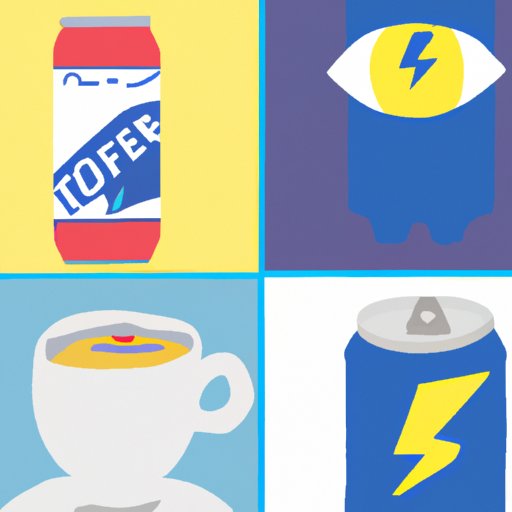Introduction
Energy drinks are beverages that contain stimulants such as caffeine, taurine, guarana, and B-vitamins. They are marketed as providing an extra boost of energy and alertness, making them particularly popular among young people, athletes, and those who work long hours. While these drinks may give you a quick burst of energy, there are many potential health risks associated with their consumption.
High Sugar and Caffeine Content of Energy Drinks
Energy drinks typically have high levels of sugar and caffeine. A typical 8-ounce can of energy drink contains about 27 grams of sugar, which is equivalent to about 7 teaspoons of sugar. On average, a can also contains about 80 milligrams of caffeine, which is comparable to the amount found in a cup of coffee. The high sugar and caffeine content of these drinks can cause several health issues.
Health Risks Associated with High Sugar and Caffeine Content
The high sugar content of energy drinks can increase your risk of obesity and other chronic health conditions such as diabetes and heart disease. In addition, the caffeine in energy drinks can cause jitters, increased heart rate, and insomnia. It can also lead to headaches, nausea, and dehydration.
Potential for Addiction to Energy Drinks
The high caffeine content of energy drinks can lead to physical dependence, which means that you need to consume the drink in order to feel normal. This can lead to an unhealthy cycle of craving and consuming energy drinks, which can be difficult to break.
Impact on Mental Health
The effects of energy drinks on mental health are less well understood, but there is some evidence to suggest that they can have a negative impact. A study conducted by the University of Maryland Medical Center found that people who consumed energy drinks were more likely to report feelings of anxiety and depression than those who did not.
Long-term Effects of Energy Drink Consumption
The long-term effects of energy drink consumption are still being studied, but some research suggests that they may be linked to mental health issues such as attention deficit hyperactivity disorder (ADHD) and bipolar disorder. More research is needed to determine the exact relationship between energy drinks and mental health.
Cardiovascular Problems
There is evidence to suggest that energy drinks can have a negative impact on cardiovascular health. A study published in the journal Circulation found that energy drink consumption was linked to an increased risk of abnormal heart rhythm and elevated blood pressure.
Possible Long-term Effects
The long-term effects of energy drink consumption on cardiovascular health are still unknown, but some experts believe that they could increase the risk of stroke or heart attack. More research is needed to understand the full impact of energy drinks on cardiovascular health.
Sleep Patterns
The caffeine in energy drinks can disrupt your sleep patterns. A study conducted by the American Academy of Sleep Medicine found that people who consumed energy drinks were more likely to have difficulty falling asleep and staying asleep than those who did not. This can lead to fatigue and decreased performance during the day.
Potential for Energy Drink Abuse in Young People
Young people are particularly vulnerable to the potential dangers of energy drinks due to their higher levels of caffeine sensitivity. Research has shown that energy drink consumption can lead to energy drink abuse, which can have serious health consequences. For this reason, it is important for parents to be aware of their children’s energy drink consumption.
Conclusion
Energy drinks may give you a quick burst of energy, but they come with a host of potential health risks. The high sugar and caffeine content of these drinks can increase your risk of obesity and other chronic health conditions. In addition, energy drinks can have a negative impact on mental health and cardiovascular health, and can disrupt your sleep patterns. For these reasons, it is best to limit your consumption of energy drinks or avoid them altogether.
(Note: Is this article not meeting your expectations? Do you have knowledge or insights to share? Unlock new opportunities and expand your reach by joining our authors team. Click Registration to join us and share your expertise with our readers.)
